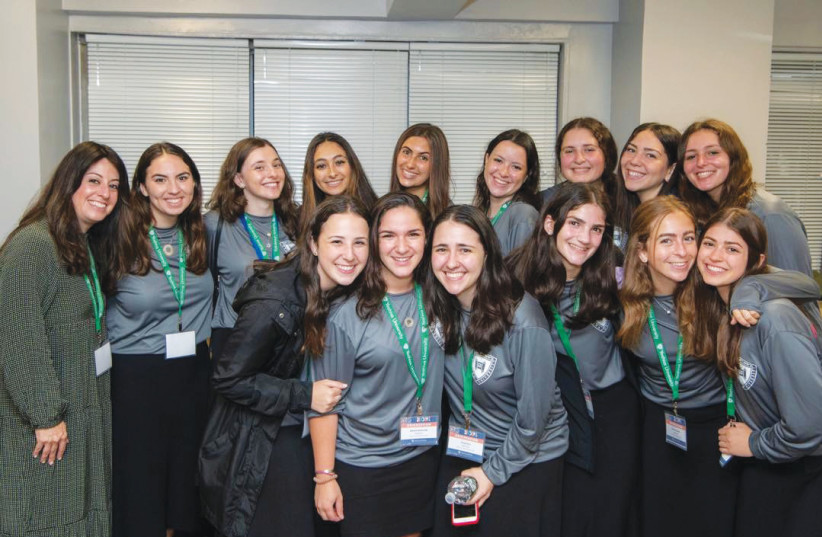Girls raised by Jewish parents are more likely to graduate college, according to a new academic sociology study published by the American Sociological Review.
The survey data reveal that girls with a Jewish upbringing have two distinct post-secondary patterns compared to girls with a non-Jewish upbringing, even after controlling for social origins: They are 23 percentage points more likely to graduate from college, and the colleges they graduate from are much more selective.
Researchers from Cornell, Tulane and Stanford universities followed 3,238 adolescents for 13 years to conclude that girls raised by at least one Jewish parent acquire a particular way of viewing the world that influences their education choices, career aspirations and various other experiences.
The study, titled “From Bat Mitzvah to the Bar: Religious Habitus, Self-Concept, and Women’s Educational Outcomes,” was conducted by Ilana M. Horwitz, Kaylee T. Matheny, Krystal Laryea and Landon Schnabel.
Thirty-three girls from comparable social origins were interviewed repeatedly between adolescence and emerging adulthood – a total of 107 interviews. “Girls raised by Jewish parents articulate a self-concept marked by ambitious career goals and an eagerness to have new experiences,” the study states.

“For these girls, elite higher education and graduate school are central to attaining ‘self-concept congruence.’ In contrast, girls raised by non-Jewish parents tend to prioritize motherhood and have humbler employment aims. For them, graduating from college, regardless of its prestige, is sufficient for self-concept congruence.”
The study concludes that “religious subculture is a key factor in educational stratification, and divergent paths to self-concept congruence can help explain why educational outcomes vary by religion in gendered ways.”
The study explains that “American Jews, and especially Jewish women, have exceptionally high rates of educational attainment and attend more selective colleges, even after controlling for socioeconomic status.” But their success is not simply a reflection of ascribed characteristics like being Jewish or being female: “Structural, cultural, historical, and social psychological processes contribute to Jews’ academic success, and to ethno-religious stratification in higher education more broadly.”
It examined how religious subcultures differentially shape girls’ perceptions of the world and self-concept in ways that affect their educational pathways.
“Because families provide the contexts in which habitus is developed,” the study authors said, “we theorized that children raised by parents from different religious subcultures – even those from otherwise similar socioeconomic backgrounds – acquire different habits of mind, dispositions to action and evaluative orientations.”
